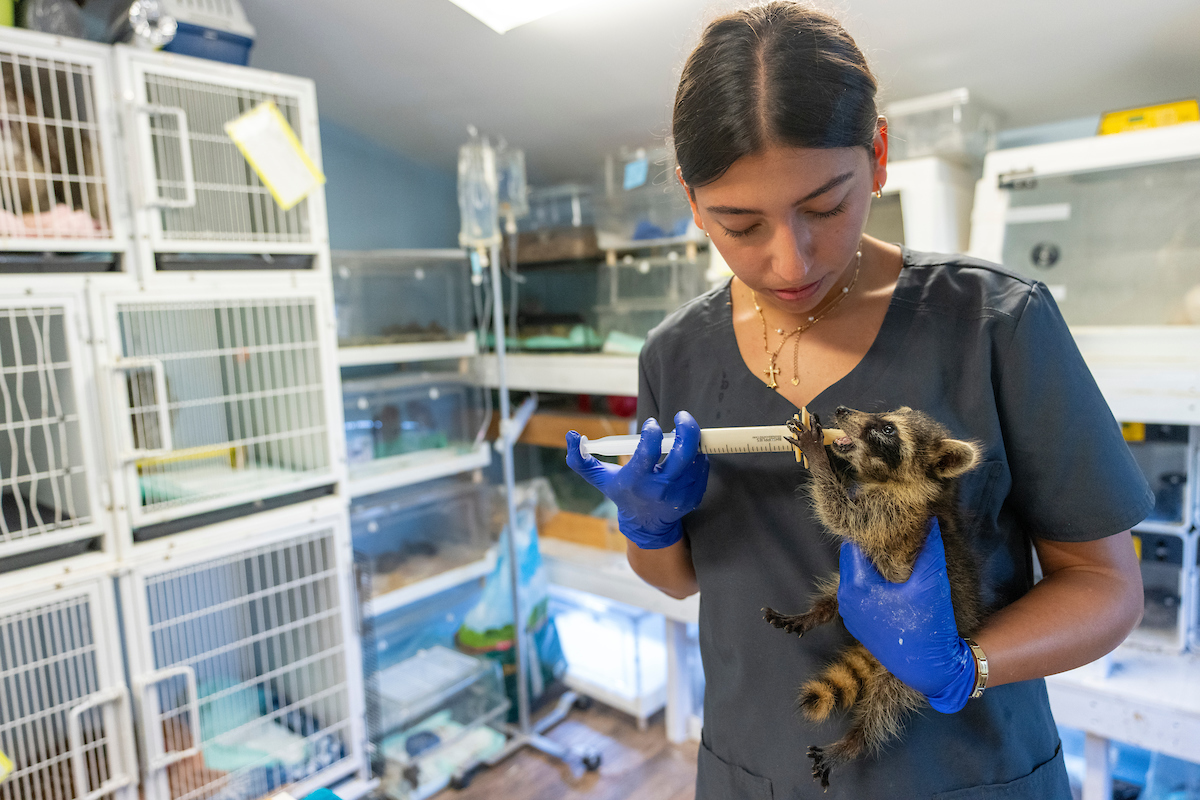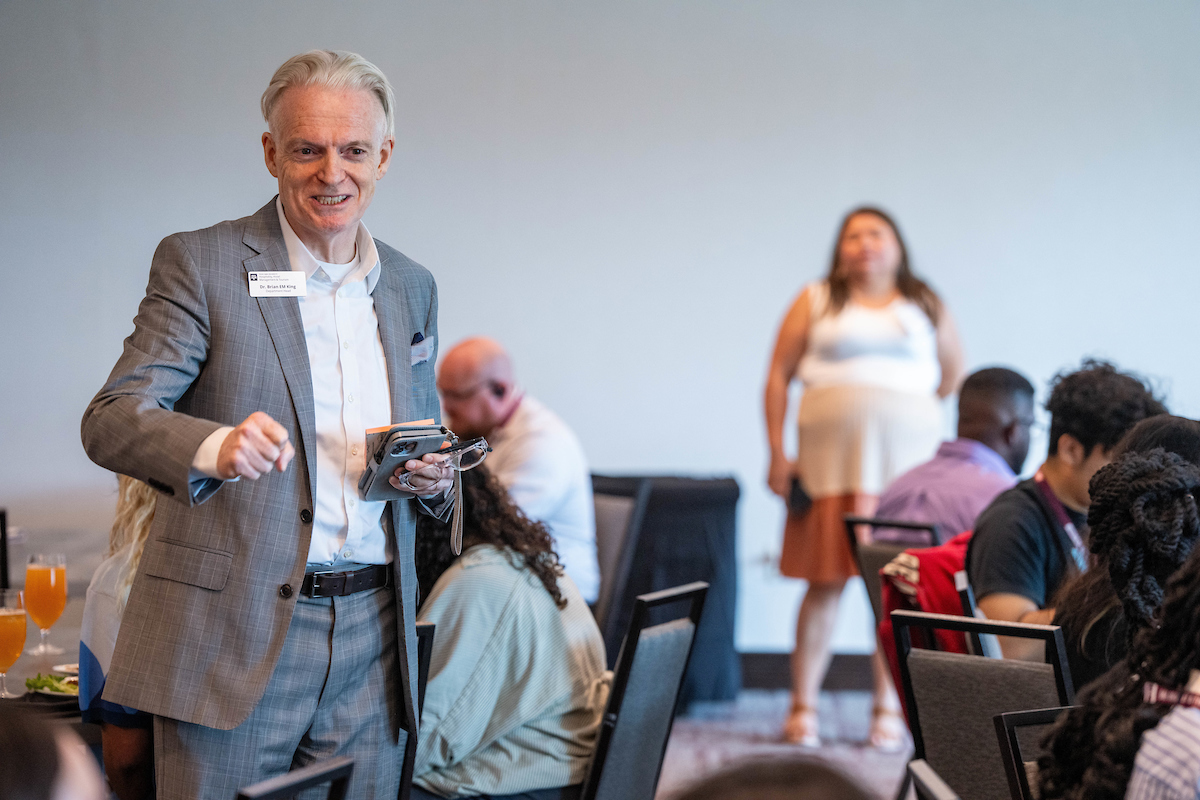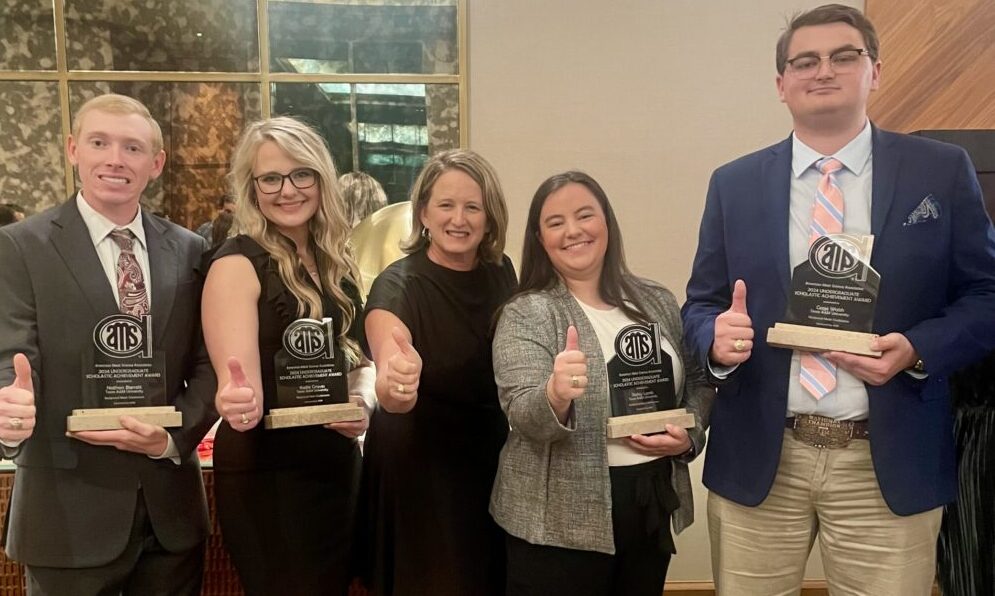Animal science student finds purpose, community at Texas A&M and on Ranch Horse Team
Tucker Gillespie ’26 shares experiences in the Department of Animal Science that transformed his college journey
Raised in the small, rural community of McCook, Nebraska, it came as no surprise to Tucker Gillespie ’26 that he became an Aggie.
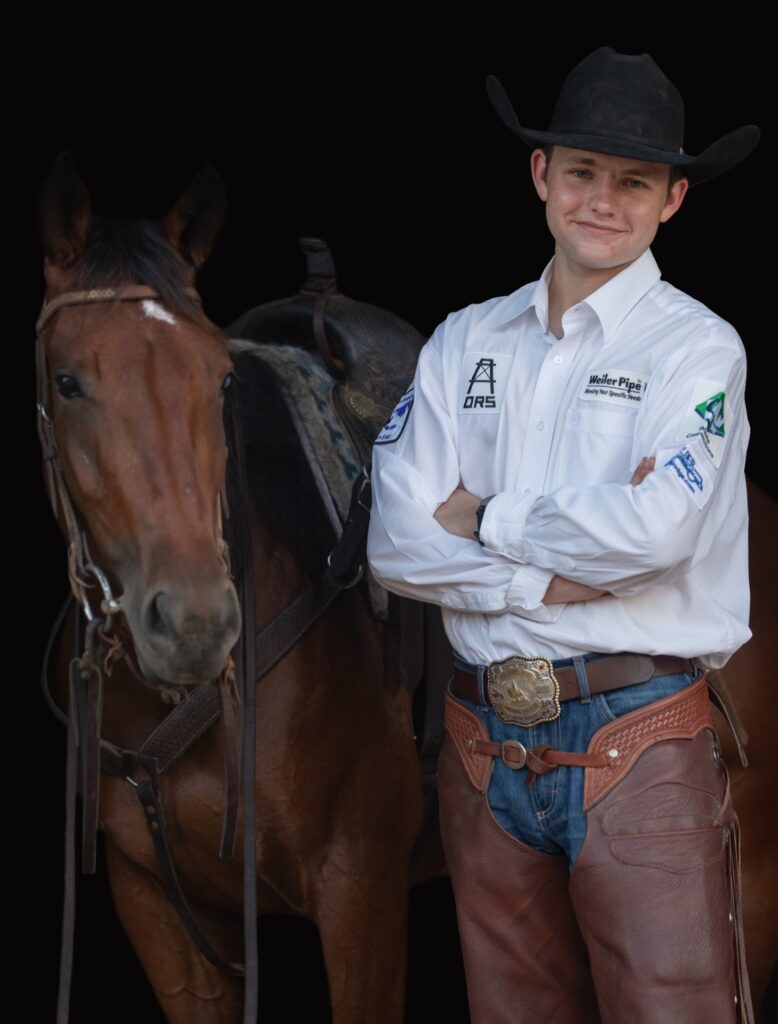
Gillespie, a sophomore animal science and molecular and cellular biology double major in the Texas A&M College of Agriculture and Life Sciences Department of Animal Science, attributes much of his journey to Texas A&M University to his upbringing in a farming community. His parents, both former Texas A&M students, were instrumental in immersing Gillespie in agriculture, particularly through his father’s work as a large animal veterinarian.
His community also exposed Gillespie to many areas of agriculture, helping him find a way to diversify his agricultural interests through 4-H and FFA. As an FFA member, he learned of the many opportunities available in animal science education, and when the time came to make a decision about college, he felt there was no better choice than Texas A&M.
“Since birth, I was destined to attend Texas A&M, and I have never looked back,” Gillespie said.
Gillespie shares his student perspective
Gillespie is an animal science honors student, a university Honors Fellow, an undergraduate research scholar and a teaching assistant for an introductory animal science course. He is a member of the Texas A&M Pre-Medical Society, the Phi Kappa Phi Honor Society and the Building Researchers and Innovators in Neuroscience Society,
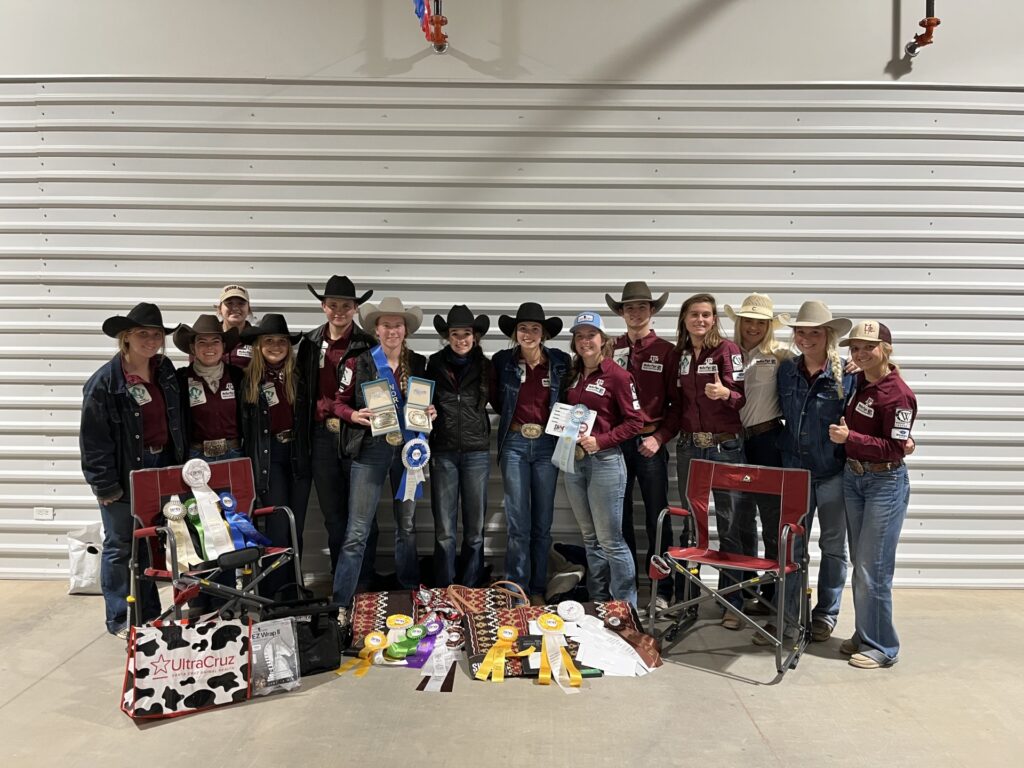
Aside from academic extracurriculars, he is also a member of the Texas A&M Ranch Horse Team, a competitive team in the Department of Animal Science.
Gillespie’s love for horses started early, thanks to his family’s own horses. This interest quickly grew into a passion that led him to compete in local, state and national horse competitions with 4-H.
Gillespie set his sights on becoming a member of the ranch horse team after learning he could continue his passion in college as a team member. He said his time on the ranch horse team has greatly impacted his college experience by giving him a community and a sense of purpose alongside his teammates.
Now, as he wraps up his second year on the team, Gillespie shared how being part of the team has shaped his educational journey, and what he has enjoyed most about his time as a student in the department.
How did you become part of the ranch horse team?
I first learned about the ranch horse team when I was in sixth grade. My older sister attended a camp held by the Texas A&M Equestrian Team, and I was enthralled with the idea. Although I was bummed out that I couldn’t join the equestrian team, the coaches kindly introduced me to the ranch horse team, and that was it — I was hooked.
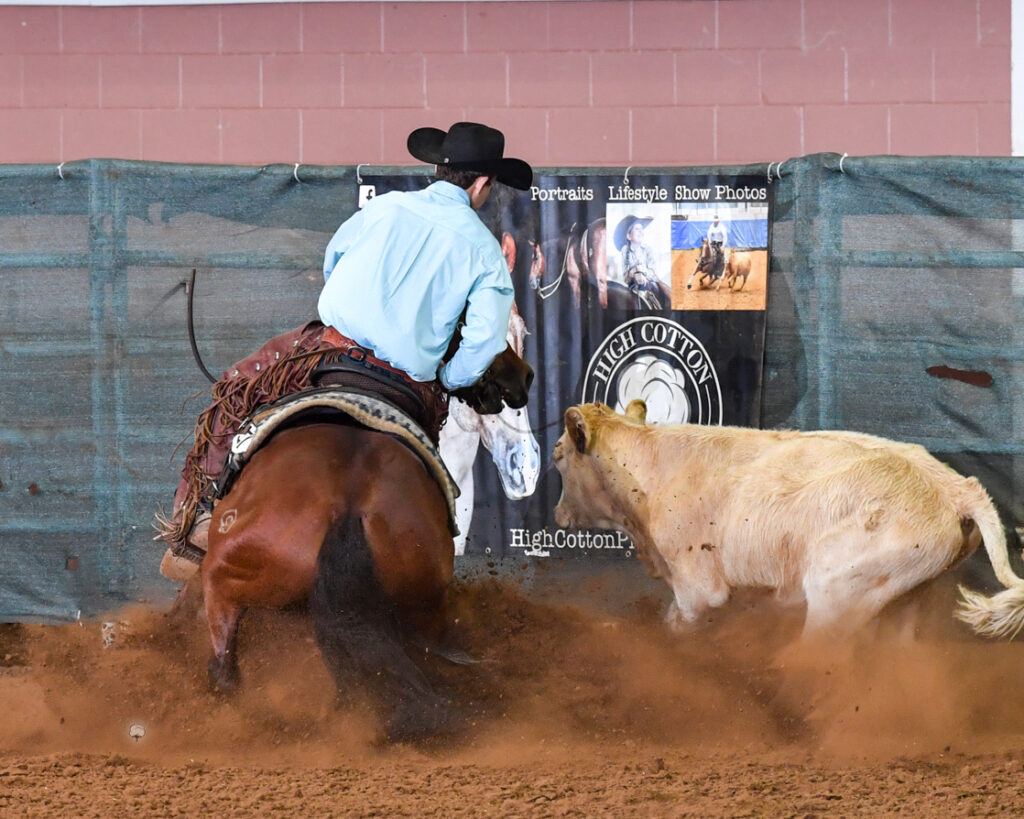
I started training a young horse of my own that I would later bring to Texas A&M to try out for the team. Preparing this young horse for all four team events taught me patience like nothing else could. Little did I know, the learning process of training a young horse prepared me well for my time on the ranch horse team. Every competition presents new challenges, and the best way for us to overcome those is with a calm attitude and a mindset focused on growth.
Six years after learning about the ranch horse team, I tried out and was invited to become a member.
How has being a team member added to your educational experience?
Just like any other judging team or extracurricular activity at Texas A&M, the ranch horse team is a family. What sets us apart is that we have four years of eligibility, which means our bond gets even stronger knowing we will compete for more than one year.
Adapting to life at Texas A&M would not have been easy without the support of my older teammates. They have been built-in friends, mentors and experienced advisors about all things Texas A&M and animal science. In my first year, I knew I could ask my teammates anything and everything about campus. Now, I’m paying it forward by helping new team members settle into their own journey in College Station.
What specifically interested you about the Department of Animal Science?
It seems cliché, but in my eyes, the Texas A&M Department of Animal Science is legendary. When studying for 4-H and FFA competitions growing up, I was amazed at how much of our reference materials traced back to research and the expertise of faculty members in the department. The department has always been dedicated to leading science in livestock and agriculture, which was extremely appealing to me. Moreover, agriculture has always been important to me and a pillar of Texas A&M.
While I was already leaning toward the Department of Animal Science, it was my prospective student tour that sealed the deal. Before visiting Texas A&M, I toured countless colleges and met with faculty from various departments. It was the faculty in the Department of Animal Science who truly made me feel welcomed and valued. After a short visit with Dr. Chris Skaggs and Dr. Shawn Ramsey, I knew that animal science would help me reach my goals, whether that was pursuing medical school or getting a front-line job in the industry.
What is the team doing to prepare for the national contest?
Last year, our team rallied around the motto of “climbing the mountain.” Instead of getting bogged down by the ups and downs of individual competitions, we aimed to keep our eyes fixed on reaching the peak at the right moment — the national contest on April 15-17 in Amarillo.
In addition to adopting this mindset, we’ve simulated high-pressure scenarios in practice sessions. By creating intense situations, we’re honing our ability to stay focused under the pressure that will come with the national competition. Every time we step into the show pen, we are judged on our performance, our horse’s performance and the accuracy of the pattern given. By ramping up the pressure during practice, we hope to alleviate some of the stress we might face during the competition next month.
What has been the most memorable part of being on the ranch horse team?
Nearly all our practices are done before 7 a.m. on any given weekday. Every minute is a wild ride and the most memorable aspect of the team. There is nothing quite like the mix of sleepiness and intense competition before the sun even graces the horizon. The friendly banter and constant feedback on how to improve our horsemanship allows us to start each practice day with a clear purpose.
It might sound odd that the most memorable part of the team is the part that makes most people cringe, but personally, that is precisely what makes the ranch horse team so special. We are a team that thrives on hard work, whether the sun has yet to rise or has long since set.
Were there any tough times you and the team had to overcome? How did you get through it and what did you learn from the experience?
The cancellation of the 2023 Bridles and Brains competition in Fort Worth last year was tough to overcome. Each spring, our team attends two contests outside of our normal schedule. Bridles and Brains focuses on roping, penning, trail, reining, public speaking and includes a team interview. I was selected as a member of the four-person team, and we started preparing for the February competition in November of 2022. Two days before the contest, freezing rain in both College Station and Fort Worth led to its cancellation. We were extremely disappointed, but instead of dwelling on the setback, we decided to gather as a team to cook a pot of chili and watch a movie together.
Although we could have been frustrated by the weather or saddened by the missed opportunity for graduating members to compete, we chose to cherish the company of our closest friends. That evening was an important reminder to me that even though we focus a lot on the competition and its outcomes, the true value is the friendships we forge in the preparation process. It was a perfect reaffirmation of why we all joined the ranch horse team in the first place.
What are your goals after graduation?
After graduation, I plan to attend medical school with a focus on neurosurgery. Medicine has been a lifelong passion of mine, stemming from my fascination with the intricacies of physiological pathways, the critical thinking that it demands, and the people I have met along the way. My interest in neurosurgery came later when I discovered the complexities of the nervous system while taking my first psychology introductory course in high school. Ever since then, I have invested time in learning more about the brain.
Beyond medical school, I hope to work to bridge the gap in rural medicine further. Growing up in a small town, we were fortunate to have a hospital available to us, but we had to travel several hours to see specialists or receive specific care. I believe that my background in a rural community gives me unique insights into how we can begin to shift medicine back into rural areas so everyone can have equal access to quality care without hours of needless travel.
When I first decided to become a neurosurgeon, I intended to practice in an urban setting until I visited with someone who jokingly said, “Come back to the small towns. We have brains, too.” Even in jest, those words stuck with me as I realized that neurosurgery was just one of many specialties that is completely unavailable in rural areas, and that is a fact that I hope to change in the future.

